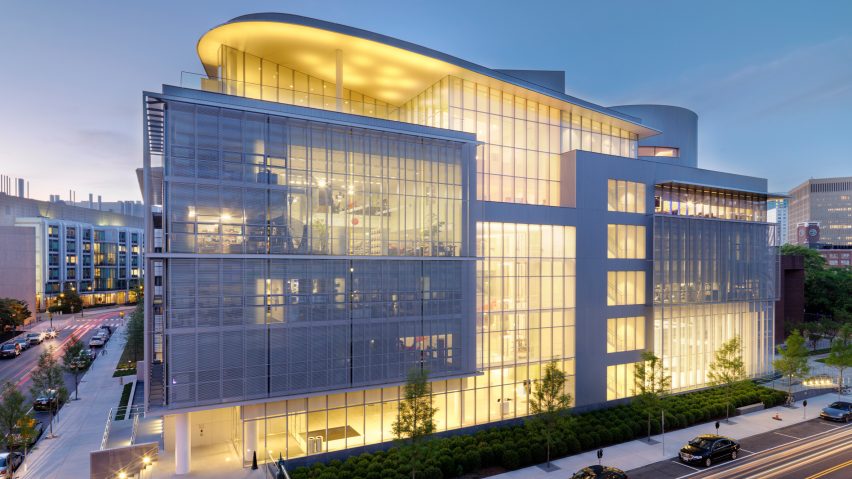Massachusetts Institute of Technology has taken the number one spot as world's leading architecture school for the third year running, according to new global rankings.
The US institute topped the leaderboard of architecture schools in the QS University Rankings, beating the Bartlett School of Architecture and the Delft University of Technology, which placed second and third respectively.
London's Royal College of Art took the top spot among the art and design universities included in the rankings – also for the third year in a row.
Institutions are ranked on their reputation among academics and employers, the number of international students and staff, the ratio of faculty members to students, and the number of citations referencing work by in research papers published within the last year.
Gaining 98 points for architecture, MIT also beat its scores in previous years of 97.3 points in 2016 and the 96.5 points in 2015.
The results of the 2017 survey are published as interactive tables, where The University of California, Berkley was placed fourth, followed by ETH Zurich, The Manchester School of Architecture and Harvard University.
The University of Cambridge ranked in eight place, while the National University of Singapore and the University of Hong Kong round up the top 10 architecture schools.
This marks the seventh edition of the QS University Rankings, which doubled its list this year to include the best 200 universities for studying architecture.
MIT's School of Architecture and Planning is best known for its innovative approach to combining media, technology with urban design and research. Former faculty members include Alvar Aalto, Buckminster Fuller, Louis Khan and Kenzo Tange,
Its departments include the Media Laboratory, which focuses on interfaces between the physical and digital worlds, and the Senseable City Lab led by architect Carlo Ratti. The Senseable City Lab carries out research projects on the future of urban living in response to digital technologies.
The institution also fared well in the Dezeen Hot List 2016, a guide to the most newsworthy and searched-for players in the design world, on account of its ground-breaking technology research.
This includes a conceptual traffic system that would enable driverless vehicles to whizz through intersections without colliding, eliminating the need for signals.

